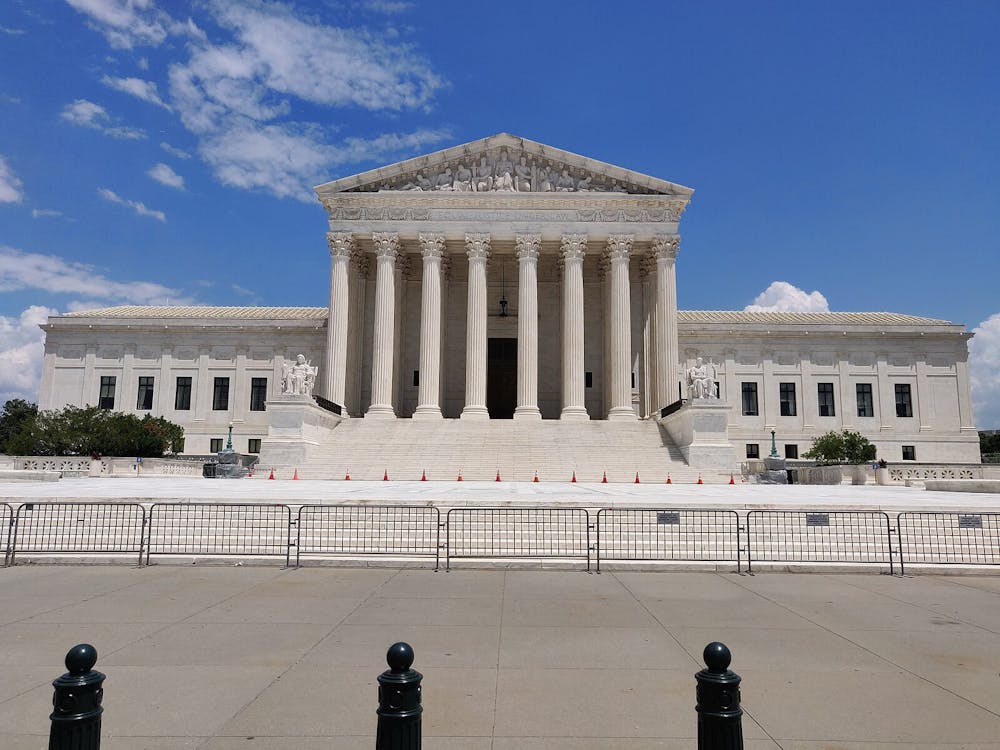By Nikita Dhawan
Correspondent
In a recent decision, the United States Supreme Court has ruled in favor of allowing immigration services in Los Angeles to consider race, along with language, occupation and location as justification for targeting certain individuals, according to The Guardian.
With a 6-3 decision, the conservative majority of the Supreme Court voted in solidarity to give Immigration and Customs Enforcement agents more autonomy in whom they decide to pull aside and question, a striking blow to lower courts, which barred ICE agents from targeting individuals without “reasonable suspicion,” BBC reports.
Now, immigration services can pull aside anyone they deem to be undocumented, despite no actual evidence proving the individual to be so. Scotusblog reported how this ruling is in relation to the prominent immigration sweeps in LA, which some government officials have called the “largest Mass Deportation Operation” in U.S. history.
Justice Brett Kavanaugh, a conservative judge and Trump appointee who voted in favor of the ruling, wrote that race alone is not enough to be deemed as “reasonable suspicion.” Instead, there must be a “totality of the circumstances,” in which circumstances like whether or not there is a high number of undocumented immigrants within the area, as well as an individual's fluency in English, are considered.
Justice Kavanaugh points out how immigrants often “gather in certain locations to seek daily work” and “often work in certain kinds of jobs, such as day labor, landscaping, agriculture and construction,” stating all these factors taken into account together provide sufficient evidence for ICE agents to question somebody, according to Scotusblog.
In contrast, Justice Sonya Sotomayor wrote a long dissent, claiming the new ruling is in violation of civil liberties. The Guardian reports how Sotomayer, one of the three liberal judges on the court, worries about the repercussions of the ruling and what it may mean to the Latino population as a whole, stating, “we should not have to live in a country where the Government can seize anyone who looks Latino, speaks Spanish and appears to work a low wage job.”
It is important to note that this ruling is solely temporary. Its purpose was to block the rulings of lower courts, specifically U.S. District Judge Maame Ewusi-Mensah Frimpong, who had issued a restraining order limiting ICE agents on whom they can target.
Judge Frimpong argued that targeting individuals based on their occupation and race violates the Fourth Amendment, which prohibits the government from conducting unreasonable searches and procedures.
The Supreme Court issued a stay on this restraining order, putting the lower court's decision on hold until the case is reviewed by the appeals court and ultimately makes its way back to the Supreme Court to issue a final decision.
Despite the impermanence, the Supreme Court's recent ruling gives an idea of how they may rule on this case in the future, effectively allowing for legal “racial profiling” within law enforcement, according to the American Immigration Council.
The new ruling marks a significant milestone for the Trump administration. California Governor Gavin Newsom strongly criticized the decision. According to The Guardian, Newsom asserted, “Trump’s private police force now has a green light to come after your family — and every person is now a target. But we will continue fighting these abhorrent attacks on Californians.”







